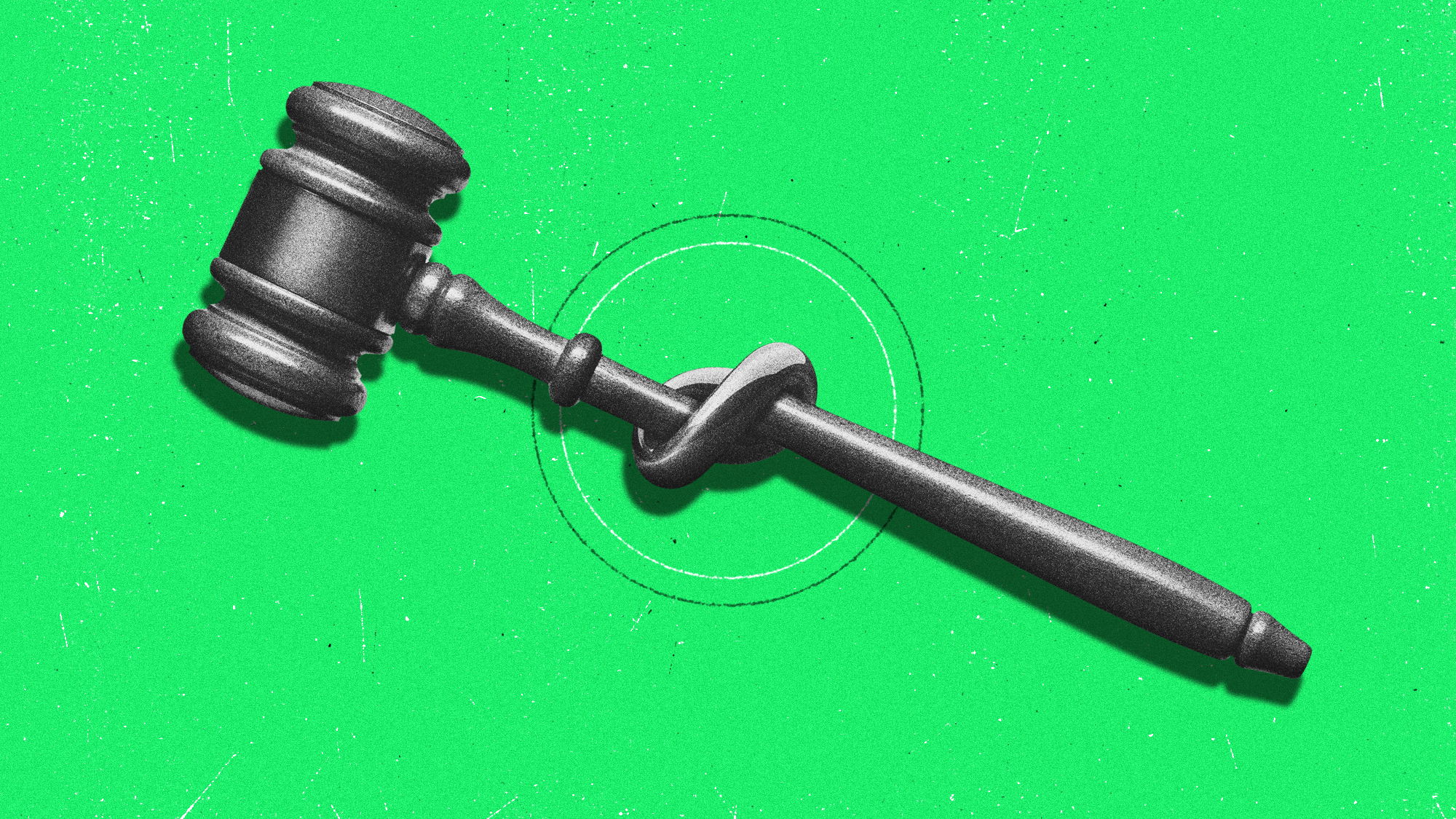ICC under attack: can court continue to function?
US sanctions 'designed not only to intimidate court officials and staff' but 'also to chill broader cooperation', say rights group

A free daily email with the biggest news stories of the day – and the best features from TheWeek.com
You are now subscribed
Your newsletter sign-up was successful
Karim Khan, the chief prosecutor at the International Criminal Court, has been barred from entering the US, becoming the first person to be hit by Donald Trump's sanctions against the beleaguered tribunal.
The US president has accused the ICC – formed in 2002 to prosecute genocide, crimes against humanity and war crimes in member states – of abusing its power and threatening national security by taking "illegitimate and baseless actions targeting America and our close ally Israel".
An executive order signed by Trump last week imposed sanctions on designated ICC personnel that included freezing their US assets and barring them and their families from entering the US.
The Week
Escape your echo chamber. Get the facts behind the news, plus analysis from multiple perspectives.

Sign up for The Week's Free Newsletters
From our morning news briefing to a weekly Good News Newsletter, get the best of The Week delivered directly to your inbox.
From our morning news briefing to a weekly Good News Newsletter, get the best of The Week delivered directly to your inbox.
In December, ICC President Tomoko Akane warned that such measures "would rapidly undermine the court's operations in all situations and cases and jeopardise its very existence", said The i Paper.
What did the commentators say?
Trump's "vicious assault" on the Netherlands-based ICC is "no surprise", said The Guardian, but "goes even further" than sanctions imposed in his first term, "attacking the fundamentals of the court and endangering its functioning".
The EU has stated the US sanctions represent a "serious challenge" to the work of the ICC, which is currently investigating alleged crimes in 12 ongoing situations, including Darfur, Ukraine, Venezuela, Afghanistan and Myanmar.
The US – along with China, India, Russia and Israel – has never been part of the ICC but in recent years even its members have increasingly ignored its rulings amid a fracturing of the post-Cold War international rules-based consensus. Last year, Mongolia failed to execute an international arrest warrant against Russia's President Vladimir Putin after he landed in the country for an official visit, citing the country's energy dependence on its powerful neighbour.
A free daily email with the biggest news stories of the day – and the best features from TheWeek.com
While it has issued 33 unsealed arrest warrants – ranging from Israeli PM Benjamin Netanyahu and Putin to Ugandan rebel leader Joseph Kony – the court is "currently without a single trial ahead for the first time since it arrested its first suspect in 2006", said Time.
If nothing else, this shows how international humanitarian law "needs instruments that better reflect the nature of contemporary conflict, institutions which can apply them dispassionately, and the acquiescence of sovereign states to their jurisdiction", said Stephen Daisley in The Spectator.
To this end, "it is possible to be a liberal internationalist, concerned with the humanitarian dimension of conflict, and to welcome Donald Trump's intervention".
What next?
Banning Khan, a British citizen who was designated by Washington on Friday, "will be seen as retaliation" for the ICC issuing an arrest warrant for Netanyahu, said The Times.
But Human Rights Watch (HRW) has warned Trump's executive order appears "designed not only to intimidate court officials and staff involved in the court's critical investigations, but also to chill broader cooperation with the ICC".
The BBC reported the court's "technical and IT operations – including evidence gathering – could also be affected", while "observers have voiced fears that victims of alleged atrocities may hesitate to testify".
US sanctions could have a particularly "chilling effect" on banks and companies outside the US that do business with the court, HRW said.
One way to safeguard against this would be through an EU Blocking Statute, "regulation that aims to protect companies and individuals from the bloc from the effects of extra-territorial sanctions imposed by third countries", said Middle East Eye.
The ICC, which has received the backing of dozens of member states in recent days, could go further and charge Trump and other US officials behind the sanctions with obstruction of justice. This would mean the US president and senior members of his administration would not be able to travel to ICC member states, including most European countries.
With the process of bringing war criminals to justice being "slow, painful and often unsuccessful at the best of times", many have long "wondered how effective the ICC can really be", said The Guardian.
Trump's sanctions are a "perverse recognition of the importance of the court, and of international law more generally".
Elliott Goat is a freelance writer at The Week Digital. A winner of The Independent's Wyn Harness Award, he has been a journalist for over a decade with a focus on human rights, disinformation and elections. He is co-founder and director of Brussels-based investigative NGO Unhack Democracy, which works to support electoral integrity across Europe. A Winston Churchill Memorial Trust Fellow focusing on unions and the Future of Work, Elliott is a founding member of the RSA's Good Work Guild and a contributor to the International State Crime Initiative, an interdisciplinary forum for research, reportage and training on state violence and corruption.